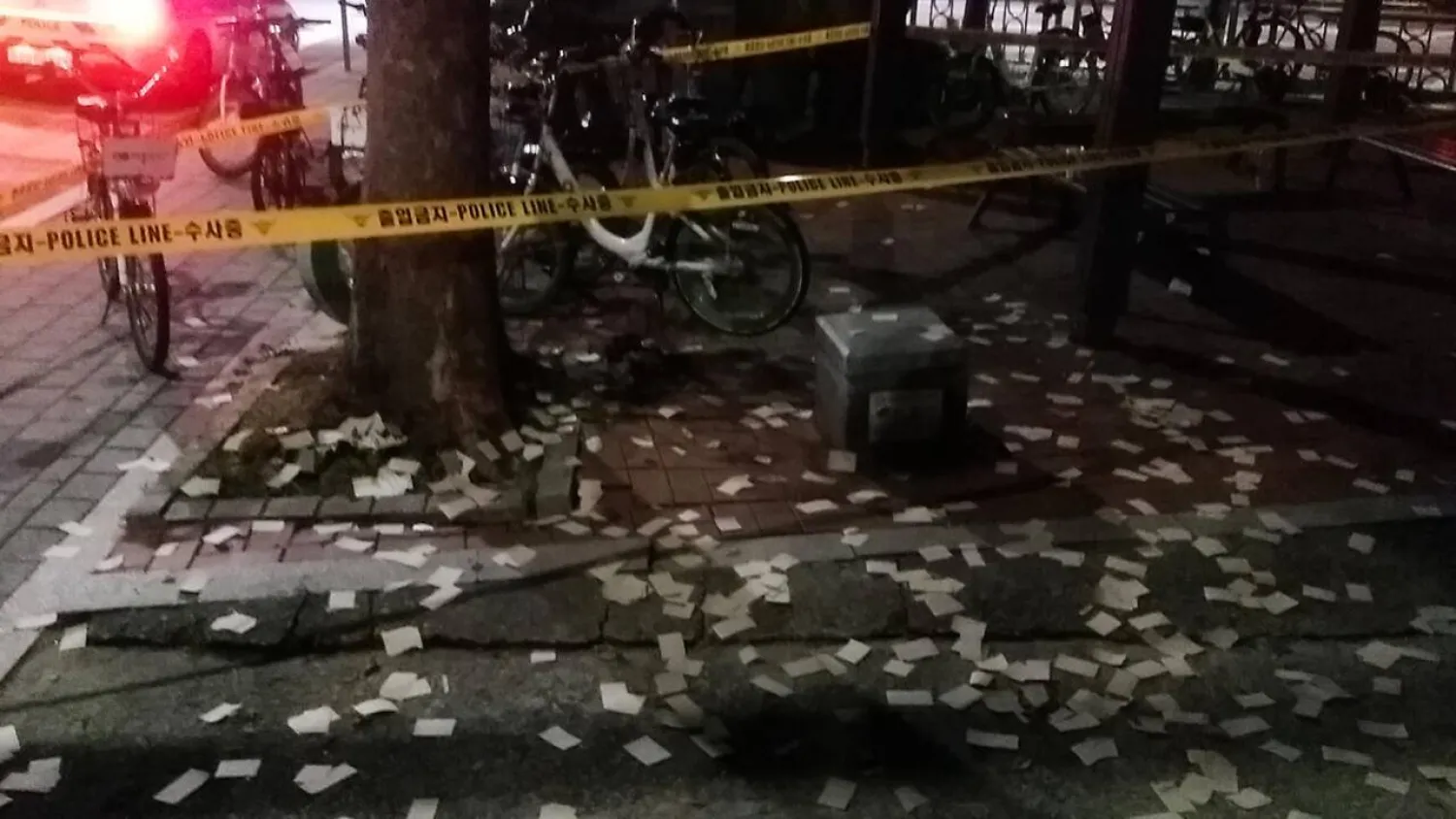South Korea said Monday it would take "decisive military action" if anyone is killed by the wave of trash-carrying balloons being launched across the border by North Korea.
Pyongyang has sent more than 5,500 balloons carrying payloads of garbage since May, disrupting flights, causing fires, and even hitting government buildings in the South, AFP reported.
Pyongyang says the tactic is a response to activists in the South sending balloons carrying propaganda to the North.
Seoul "will take decisive military actions if the North's trash-filled balloons post a serious safety threat or are deemed to have crossed a line", Lee Sung-joon, of the Joint Chiefs of Staff, told reporters.
The line would be crossed if anyone died as a result of the balloons he said, without giving details on exactly what the "decisive" measures would entail.
Most of the balloons sent by the North have bags of waste paper attached, which pose no specific health risk, but concerns have been raised after new devices attached to some caused fires in recent weeks.
"Our military is closely monitoring the North Korean military and tracking the launch point of the balloons in real time," the JCS's Lee said.
The warning came hours after the latest balloon launch briefly disrupted flights at Incheon airport.
Shortly after the North's launch of trash-filled balloons in May, Seoul suspended a military deal with Pyongyang and restarted propaganda broadcasts from loudspeakers along the border.
Relations between North and South Korea are at one of their lowest points in years, with the North recently announcing the deployment of 250 ballistic missile launchers to its southern border.
The North also earlier this month released images of its uranium enrichment facility for the first time, showing leader Kim Jong Un touring as he called for more centrifuges to boost his nuclear arsenal.
The country, which conducted its first nuclear test in 2006 and is under rafts of UN sanctions for its banned weapons programs, had never publicly disclosed details of its uranium enrichment facility before.
"The North could carry out its seventh nuclear test any time Kim Jong Un gives a greenlight... including before or after the US presidential election" in November, Shin Won-sik, the president's national security adviser, said Monday in an interview with Yonhap News TV.
South Korea Warns of 'Decisive' Action against Trash Balloons

A handout photo provided by the South Korean Defense Ministry shows garbage carried by a North Korean balloon that landed in Seoul in June. Handout / South Korean Defense Ministry/AFP/File

South Korea Warns of 'Decisive' Action against Trash Balloons

A handout photo provided by the South Korean Defense Ministry shows garbage carried by a North Korean balloon that landed in Seoul in June. Handout / South Korean Defense Ministry/AFP/File
لم تشترك بعد
انشئ حساباً خاصاً بك لتحصل على أخبار مخصصة لك ولتتمتع بخاصية حفظ المقالات وتتلقى نشراتنا البريدية المتنوعة







